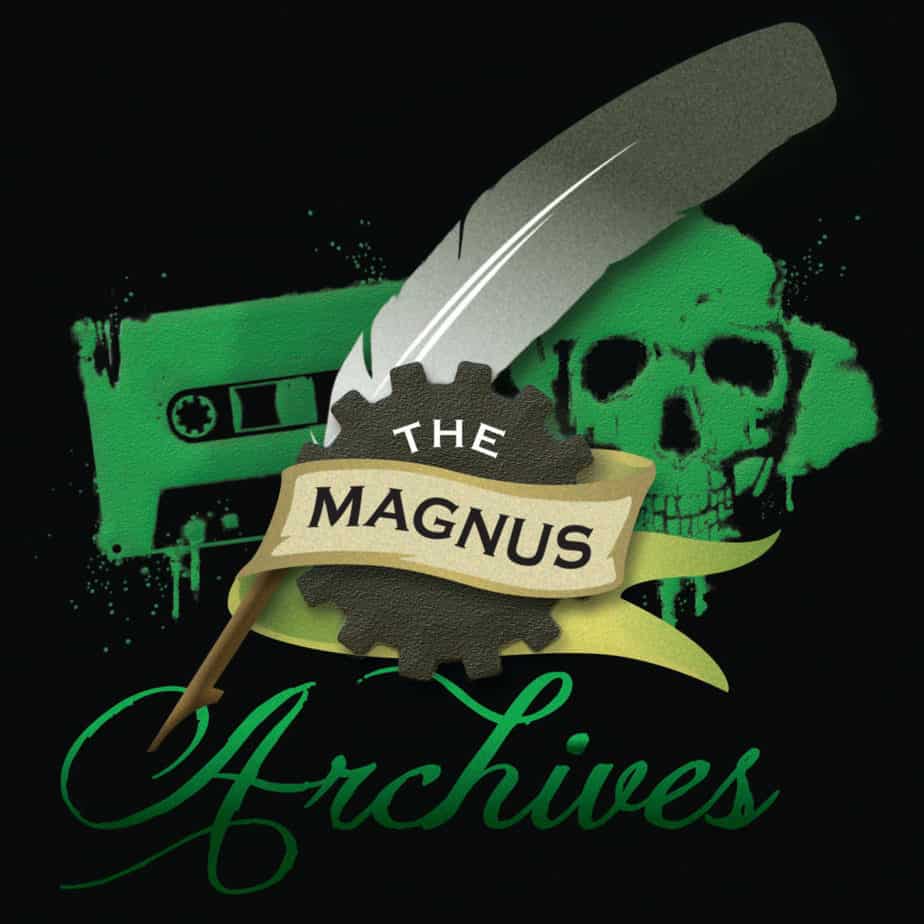The Magnus Effect: how Tumblr contributed to the success of The Magnus Archives

Last updated on October 29th, 2019
It’s a rare occurrence in itself when a fictional audio drama that isn’t Welcome to Night Vale makes it to the trending page of Tumblr. As a Tumblr veteran since 2008 and someone who still uses the platform to this day, I know well that it takes a certain touch to properly breech all that dark, dark blue and stand alongside Marvel news updates and celebrity gossip for just one day.

The short answer would be that The Magnus Archives is simply an excellent series with solid writing, great world building, and compelling characters, not limited to a brilliant take on the narrator, but to leave it at that would be doing its impact a disservice.
The Magnus is gory and grim in all the ways that are fun and honestly wouldn’t be as effective in any other format besides audio, making it one of my favorite horror shows to date. And when you’re sharing company with Archive 81 and SAYER, that’s a compliment to take with good merit.
As much as I want to, going into extreme detail about the things that make The Magnus Archives work would include a long list of spoilers. Given the plot setup of the individual episodes and how things really start to pick-up in later seasons, that would make things so much less impactful for anyone willing to give it a listen so expect vague but meaningful praise from here on out.
Upon digesting a fair amount of the episodes, I can best describe The Magnus Archives as the audio drama variant of those particularly good SCP: Containment Breach entries. Each episode catalogues a sort of supernatural entity or occurrence being narrated by Jonatahn Sims, head archivist of The Magnus Institute, and like a British Twilight Zone, we’re given a number of engaging short stories about strange neighbors, creepy books, and self-proclaimed vampires.
Scary creatures are there own special category that almost anyone can accomplish and my comparison to SCP doesn’t come without meaning as the same draw is there. A ghost is just a ghost and a monster is just a monster, but a decoy human man lurking in an alleyway asking for a cigarette in a monotone voice is where creepy and creative collide.
The Magnus Archives prides itself on its razor sharp tension and fear of the unknown. As an avid fan of psychological horror, that sense of creeping suspension is something I’ve grown to appreciate in my podcasts and The Magnus definitely relies on that approach.
It also doesn’t hesitate from characterizing it’s densely detailed world as overtime we don’t only get to know more about the residents and their individual problems with a supernatural force, but the morbid secrets of The Institute and what it truly means to be an archivist. And it’s here that I realize just what has been the main draw of the show: it’s narrator.
And yes, Jonathan Sims, the voice of the character of the same name, does have a very rich and soothing speaking voice but how he changes and why is something I’ve rarely seen explored in audio drama. It’s such a dramatic turn and an excellent shift in the show’s status quo it was enough to keep me coming back just to see what new quirks Jonathan had in store.
Much like my Lovecraft statement earlier, there’s nothing better than feeling that our main character is as unstable and bizarre than the world he occupies but going into detail would say too much.
Despite this huge shift that the Rusty Quill was willing to tackle, If there’s anything Tumblr likes its a taste of the familiar with a sort of zest that sets it apart from everything else. A few popular tropes I’ve come to recognize over the years do appear in The Magnus but never once did I feel like it was cribbing off someone else.
Night Vale seems to have set the standard and has still left a massive footprint in its wake, quietly prompting a number of Internet creatives to fill in the hole they’ve made. Hence the podcast boom in 2015 where we got a few favorites like The Bright Sessions, Ars Paradoxica, and, the most promising contender and fellow Tumblr Trender, Wolf 359.

Each show brought something new to the table and has really inspired content creators to push their limits to make the best possible product. Thus a show about time travel, a show about space exploration, and a show about superhero therapy can all stand shoulder to shoulder as far as positive fan reception goes.
Though less of a traditional narrative set up than the ones listed, The Magnus is definitely a nice follow up to the format Welcome to Night Vale popularized and a still relatively new one at that, having it only be three years old as of this writing.
Wolf 359 and The Bright Sessions have drawn to a conclusion and so far The Magnus Archives is not only ongoing, but going very strong. The thing that makes Maguns so distinct and able to capture the imagination of its audiences the same way these podcasts did is its sense of progression.
A common gripe of mine with serialized podcasts is the sterile nature they adopt, never willing to step out of the comfort zone they’ve carved for themselves and caused me to quickly lose interest and drop them immediately. Much like poor editing or bad acting, a series afraid to step outside of its own box may as well be episodic and becomes hollow and not worth investing in.
Even SAYER that starts off as nothing short of a little sci-fi book of horrors has adopted a single narrative with more characters, more conflict, more terrible, terrible things to happen to its human subjects and it’s only gotten stronger for it.
A man talking in a chair is a template that the writer must branch off of. Wolf 359 did this transition seamlessly from having a single narrator who bounced off the other crew members until it became a full fledged third person sci-fi somewhere around the midpoint of season one.
While Magnus has yet to delve into a full solid narrative, let alone a three act structure, it’s definitely working its way to an arc, providing the sort of unease and sanity shift in its main character that Lovecraftian works are especially fond of. The Magnus is a story made of many other, equally interesting stories and even if you have a favorite, it’s bound to have some new juicy details spring to life on their designated episode.
Subjects of old stories can come back, Johnathan starts to question his own beliefs on the supernatural, and active conflict within The Institute itself starts somewhere around episode thirty eight and just keeps escalating from there.
And that’s what sets it apart from the always popular “man in chair” lineup. The Magnus pulls a bait and switch in which “man in chair” is the starting point, not the end-all-be-all. A podcast that is willing to branch out and become part of its universe instead of blindly observing it is a status quo that seems to be breaking. If there’s anything that personally scares me, it’s the threat of a monotonous audio drama world.













Comments
Comments are closed.